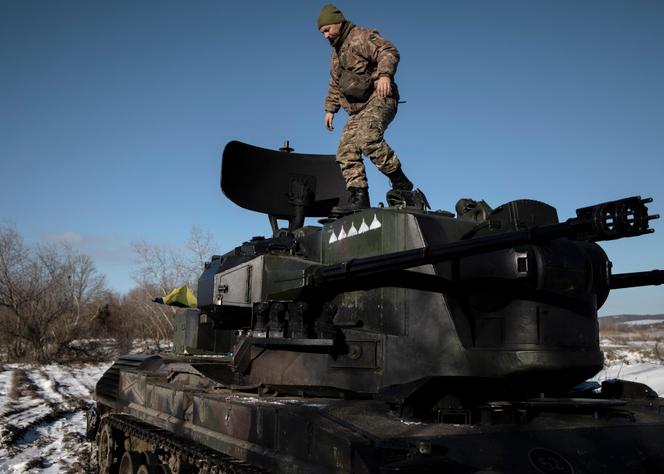


Almost two years after Russia's invasion of Ukraine, European leaders are looking to step up their aid to Ukrainian President Volodymyr Zelensky with security agreements, massive financial aid, arms supplies and declarations of unwavering support.
Following the recent dismissal of his top general, Valeriy Zaluzhniy, Zelensky was scheduled to visit Berlin on Friday, February 16, followed by Paris, before attending the Munich Security Conference the following day. At a time when the fighting is getting bogged down, and Congress in the United States is still squabbling over the continuation of aid to Kyiv, this presidential tour has taken on a special dimension.
Germany and France, long criticized for their lack of leadership, have decided to take the lead in dealing with Vladimir Putin. Late on Friday afternoon, Emmanuel Macron and Zelensky are due to sign the bilateral security agreement – that had been negotiated by their emissaries since autumn 2023 – with the aim of perpetuating Paris's military, humanitarian and economic support to Kyiv. German Chancellor Olaf Scholz was due to do the same in Berlin that morning. These commitments were first established in July 2023 by the G7 countries, followed by 25 other states – including Poland – on the sidelines of the NATO summit in Vilnius, in the absence of a start to the process of Kyiv's accession to the alliance.
"Between us, there is very great unanimity to help Ukraine," said French Defense Minister Sébastien Lecornu at the end of a meeting with his NATO counterparts on Thursday, February 15, in Brussels. "Europeans don't want to be distracted by Donald Trump's declarations" on abandoning the principle of solidarity between NATO countries, he added. "All countries are organizing themselves to provide aid to Ukraine, and coalitions based on the type of equipment to be sent to Kyiv are gradually being put in place."
The first country to seal a security deal with Ukraine was the United Kingdom. During a surprise January 12 visit to Kyiv, Prime Minister Rishi Sunak announced a 10-year support package, an act hailed as "unprecedented" by Zelensky. Britain has pledged to supply Storm Shadow long-range missiles, air defense systems, "hundreds of thousands" of new artillery shells, anti-tank weapons and drones. In total, London has promised £2.5 billion (€2.9 billion) in military aid for 2024 and 2025, a £200 million increase on the previous two years.
The Germans, meanwhile, have budgeted some €8 billion in military aid this year, while the French were still reluctant to commit to a figure ahead of Zelensky's visit. How this aid will be financed has been a subject of debate within the French government, at a time when it needs to save €10 billion this year if it is to meet its deficit reduction target. "It's clear that the Ukrainians are expecting a precise figure," said one expert. In an interview published in Libération on Friday, February 16, Kyrylo Budanov, head of Ukrainian military intelligence, said: "If the French government wanted to, it could provide more aid."
You have 60% of this article left to read. The rest is for subscribers only.
